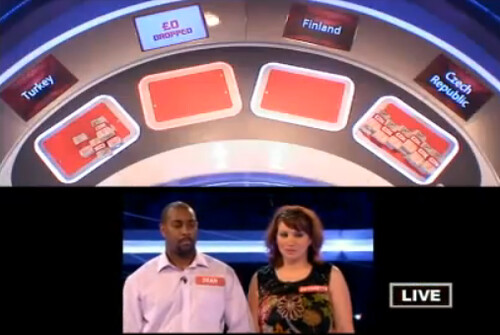Sunday, 7 October 2012
Million Pound Drop
Last night I was absolutely enthralled by the game show Million Pound Drop Live. Game shows aren't usually my thing, but this was just so full of behavioural economics I could not help but be glued to it.
I could probably write dozens of blogs about various aspects of the game, but today I'll focus on the contestants attitude towards risk.
The show design is simple: the pair of contestants start off with £1m and have to answer 8 questions correctly to win. The twist is that the contestants choose which of the potential answers they want to stake their money on. The incorrect answers are trapdoors - the money placed on these drop away. The correct answer does not drop - the money placed here is kept for the next round. Thus contestants can split their money between answers if they are not sure: they can spread the risk.
It was incredibly interesting watching yesterday's show as the contestants were highly risk averse. They always split their money, regardless of how sure they were of the answer. Even when the were certain they still put some of their money on other options. The end result was that if they'd put all the money on the answer they thought was correct (when they were certain) they would have come out with a lot more than their eventual prize of £150,000 (which is apparently relatively high compared to others).
There are few better examples of risk aversion than watching the contestants on Million Pound Drop, but perhaps why it was so obvious was that as we were playing along at home we never split our money between options. We were risk preferring because we were not playing with real money, I dare say that put me on the show and I would be as risk averse as anyone else. When it is our money it is harder to avoid risk.
PS A few of my sums for you:
If you were to always put 90% of your money on the correct answer you would end up winning £430,467
If you were to always put 75% of your money on the correct answer you would end up winning £100,113
If you were to always put 50% of your money on the correct answer you would end up winning £3,906
(these calculations ignore the fact that the money is bundled up into packets of £25k)
Labels:
gameshow,
risk aversion
Subscribe to:
Post Comments (Atom)



hi have you copyrighted these pictures looking to use the top one for my advanced higher computing project!
ReplyDeleteHi there, the pictures are not mine. If you hold your mouse over them then you can see the original website from where they are from. I do not own any copyright on them I am afraid!
Delete